Oregon State University
Systems Science in Marine Biology
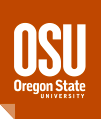
Principal Investigators
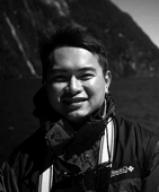
Dr. Francis Chan is Associate Professor Senior Research in Integrative Biology. Dr. Chan is an ecosystem ecologist and biogeochemist. His current research is focused on the effects of global change on elemental cycles and pH in the coastal ocean and their impacts on ecosystem structure and function. For this project, Dr. Chan’s contributions include expertise in high precision measurements of coastal ocean carbonate chemistry, nutrients, stable isotope ratios, and associated ecosystem properties.
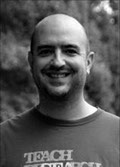
Dr. Dee Denver is Associate Professor in Integrative Biology. Denver’s research program centers on understanding evolutionary conflict and cooperation, mostly at the genetic and cellular levels. His team studies these questions using high-throughput DNA sequencing and bioinformatic approaches. Organisms studied in the Denver lab are diverse and include nematodes, phage, trees, and anemones. For this project, Denver is contributing his expertise in evolutionary systems biology, phylogenetics and genomics.
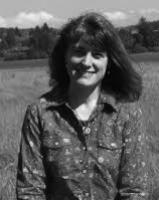
Dr. Sally Hacker is Professor in Integrative Biology. As a community ecologist interested in natural and managed coastal habitats, Dr. Hacker’s research explores the structure, functions, and services of marine ecosystems experiencing major invasions, algal blooms, and climate change. Her recent work focuses on the protective role of ecosystems in mitigating coastal vulnerability due to climate change. For this work, Hacker is using her collaborative experience and scientific knowledge of marine ecology to help coordinate the multidisciplinary group, educate graduate students, and engage the public in citizen science.
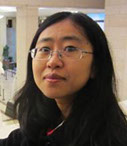
Dr. Duo Jiang is an Assistant Professor in the Statistics department. Her research in is the development of statistical and computational methods for genetics, genomics and other biological data. In particular, she has interest in biological networks, high-throughput sequencing and microbiome data. For this project, Jiang is contributing her expertise in statistical modeling, inference and computational techniques to analyze the data produced.
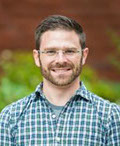
Dr. David Koslicki is an Assistant Professor in the Mathematics department. Koslicki’s research focuses on establishing mathematical and algorithmic approaches to analyzing biological data, with a special focus on methods development in metagenomics. Koslicki is contributing his expertise in the mathematical modeling, analysis, and integration of the data produced by this project.
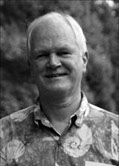
Dr. Bruce Menge is a Distinguished Professor and the Wayne and Gladys Valley Endowed Professor of Marine Biology in Integrative Biology. His major research areas are marine community and meta-ecosystem ecology, and physiological ecology, with a current focus on the impacts of climate change (including ocean acidification) on coastal marine ecosystems. He is the lead PI in the PISCO and OMEGAS consortia, both of which focus on connections between climate and the coupling between coastal intertidal communities and nearshore oceanography.
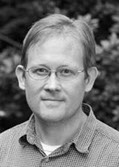
Dr. Eli Meyer is an Assistant Professor in Integrative Biology. Meyer and his team study complex traits in marine invertebrates using physiological, quantitative genetic, and genomic methods. The Meyer lab works with a variety of marine invertebrates including oysters, corals, and anemones. For this project, Meyer is contributing his expertise in proteomics and gene expression analysis using high-throughput sequencing technologies (RNA-Seq).
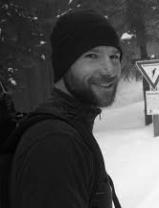
Dr. Mark Novak is an Assistant Professor in Integrative Biology (formerly Zoology) at OSU. Research in the Novak lab focuses on how species interactions affect the structure and dynamics of ecological communities. We study both marine and freshwater communities, combining fieldwork and mathematical modeling to scale between the behavior of individuals and the ecosystem-level consequences of the interacting populations and species they constitute. Novak's contribution to the proposed research is reflecting his expertise in mathematical ecology, complex systems analysis, stable isotopes, and intertidal ecology.
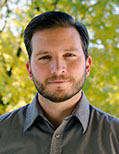
Dr. Thomas Sharpton is an Assistant Professor in the Departments of Microbiology and Statistics. Sharpton's research centers on determining how microbiomes operate to influence the physiology, ecology, and evolution of their hosts. To this end, his laboratory develops and applies high-throughput computational approaches to interpret metagenomic data. For this project, Sharpton is contributing expertise in microbiome informatics and metagenomic analyses to model host-microbiome interactions.
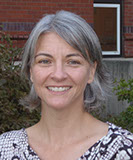
Dr. Rebecca Vega-Thurber is an Associate Professor in the Department of Microbiology. Her lab's research uses interdisciplinary and high-technology approaches to address questions about how viruses and microbes function in and affect their hosts and the environment. Using a combination of empirical experimentation, ecological field work, metagenomics, microscopy and molecular biology, her research provides important insight into a variety of fields including: virology, microbiology, reef ecology, animal physiology, and the evolution of symbioses. For this project, Dr. Vega Thurber is using her expertise to characterize changes in microbial community structure of the anemone-symbiont holobiont.
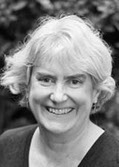
Dr. Virginia Weis is a Professor and Head of Integrative Biology. Her group examines the cellular and molecular mechanisms underpinning the intimate symbiosis between reef-building corals and their endosymbiotic photosynthetic algae. Her work includes investigations of inorganic carbon transport mechanisms, innate immunity, oxidative stress and apoptosis. Her research group uses biochemical, cellular, molecular, proteomic and genomic approaches and the research takes her and her lab members to reefs and marine labs around the world. Weis is the one member of the group with an extensive history of studying Anthopleura, including over 10 publications on Anthopleura symbiosis specifically. For this project, she is contributing her expertise in anemone physiology and symbiosis.

